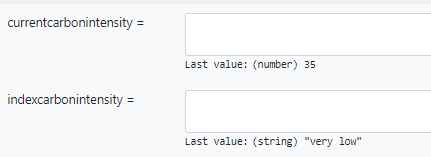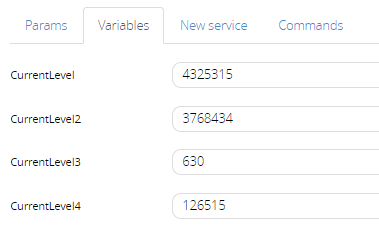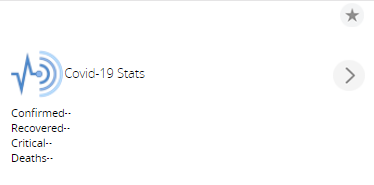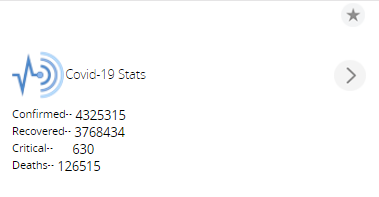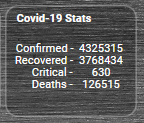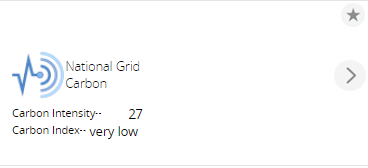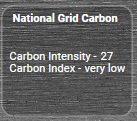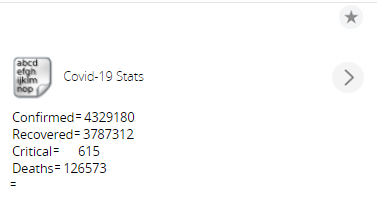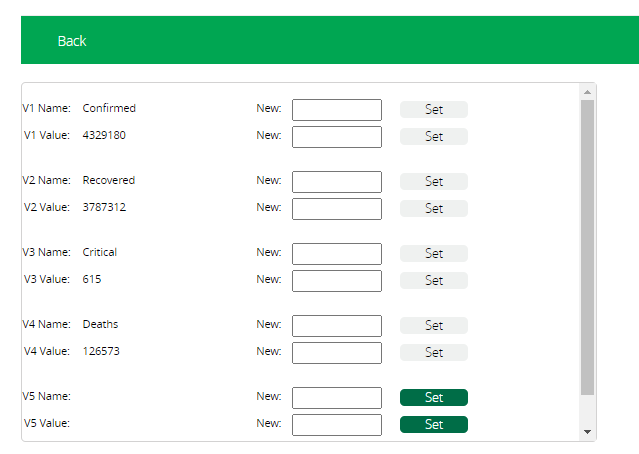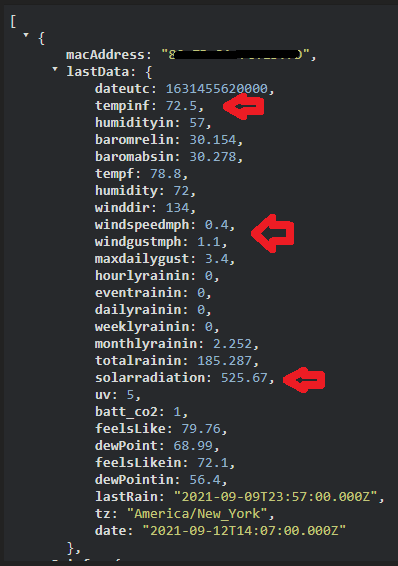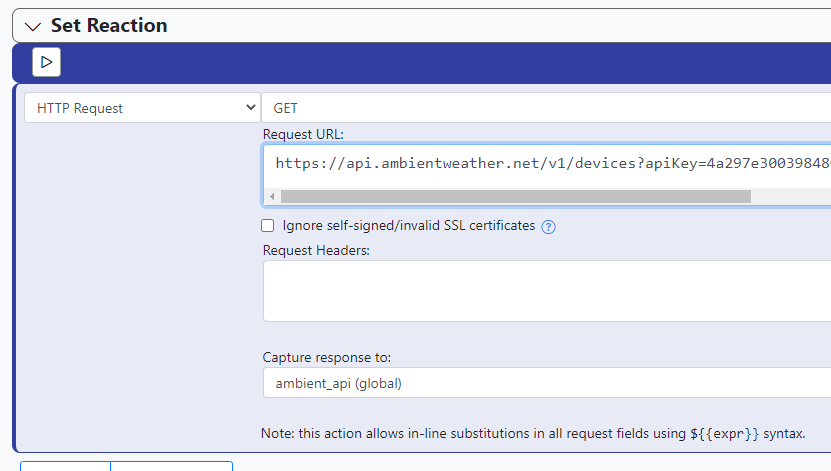Replacing SiteSensor Plugin (Vera) with MSR
-
(Also, I prefer to simply create another variable and set its value to
cointensity.data[0].data[0].intensity.forecastand then reference THAT variable in my${{ }}substitution. Why? Because this gives MSR a chance to tell me exactly where my expression is going wrong.)If you follow this scheme in your workflow, you can entirely avoid having to use
[Set Variable]so often, since the dependent variables will all "set themselves" immediately.For example, a change to
responsewill automatically update the values in any variable(s) defined byresponse.stufforresponse.stuff.still.more.stuff(caveat: as long as those variables appear belowresponsein your list of Expressions!). -
I misled you a bit. MSR uses lexpjs, which references array elements in square brackets
[]not the parentheses I first wrote (I'll edit my response, above).Go with
cointensity.data[0].data[0].intensity.forecast -
Think I need a Vera plugin Dev.
I've tried to create a modified GenericIO device with four variables but its not working.
My MSR rule is sending out the data to each variable in Vera OK
But I can't seem to get that data to display on the front of the device in the web GUI.
Also for the Home Remote dashboard app, I'd need the generic sensor device and its data fully exposing to the SDATA stream. As Home Remote uses that for integration in to Vera etc.
So close, but I don't think I'm going to be able to properly create these types of devices in Vera myself.
EDIT:
Got it working now, I was using the wrong ServiceID in my MSR rule to set the variables.
Now I just need to figure out how to get this data in to the Vera SDATA output stream for Home Remote to see.
This is all I am seeing in SDATA currently:
{ "name": "Covid-19 Stats", "altid": "", "id": 703, "category": 0, "subcategory": -1, "room": 8, "parent": 0, "configured": "0", "light": "4325315" },"light" is showing "4325315" which is the Confirmed number of Covid Cases, so that's a start, I need the other variables exposing to the SDATA stream some how.
EDIT2: I've added more <stateVariable> sections in to the S_GenericSensor2.xml file and now I can see all four variables data in the SDATA output stream, so I should now be able to add this device in to Home Remote and see all the data.
{ "name": "Covid-19 Stats", "altid": "", "id": 703, "category": 0, "subcategory": -1, "room": 8, "parent": 0, "variable2": "3768434", "variable3": "630", "variable4": "126515", "variable1": "4325315", "configured": "0" }EDIT3: I now have a tile on a dashboard page in the Home Remote app.
So as a proof of concept this works.
Just need an easier way to create these virtual devices in Vera.
Someone on the Vera forum suggested taking a look at the MultiString plugin.
-
Just testing some different online API's see what's possible.
If your in the UK the National Grid have a Carbon Intensity online API here. This is for my region / area.
The data also breaks down by percent the types of generation used, Wind, Solar, Nuclear, Coal etc but not added that as yet.
Vera:
Home Remote:
Need to play about with the tiles and add an icon and reposition some items yet.
-
I've tried the Vera Multi-String plugin, it looks just like the type of plugin I was needing and looking for.
You can have up to five variables on a device.
You can then have your rule in MSR send the data to each variable etc.
The Multi-String plugin devices data is also outputted in the Vera SDATA stream so these device will also work with the Home Remote dashboard app.
{ "name": "Covid-19 Stats", "altid": "", "id": 133, "category": 0, "subcategory": -1, "room": 0, "parent": 0, "variablename1": "Confirmed", "variable1": "4329180", "variablename2": "Recovered", "variable2": "3787312", "variablename3": "Critical", "variable3": "615", "variablename4": "Deaths", "variable4": "126573", "variablename5": "", "variable5": "", "options": "", "configured": "0" },So I recommend using the Multi-String plugin rather than trying to create your own modified Generic IO devices as I was doing.
-
@cw-kid if one wanted to set all 5 parameter values at the same time, using an HTTP call to Vera, could that be done? (If so, I'd need to see a working example of a GET Request that does this.) Or would I have to issue 5 distinct calls to set those variables?
P.S. I see from this old post that I'm not the first one to wonder.
-
@cw-kid if one wanted to set all 5 parameter values at the same time, using an HTTP call to Vera, could that be done? (If so, I'd need to see a working example of a GET Request that does this.) Or would I have to issue 5 distinct calls to set those variables?
P.S. I see from this old post that I'm not the first one to wonder.
-
I am doing a different http request to Vera to set each variable not one request that set them all.
@cw-kid said in Replacing SiteSensor Plugin (Vera) with MSR:
I am doing a different http request to Vera to set each variable not one request that set them all.
Yeah, something tells me setting more than one at a time isn't possible, anyway. Just thought I'd ask the pros.
 Thanks!
Thanks! -
You can take not-terribly-human-readable blobs like that over to a JSON Pretty Print website (such as https://jsonformatter.org/json-pretty-print), paste it in and hit the "Outline" button, to see how the data looks in its underlying structure.
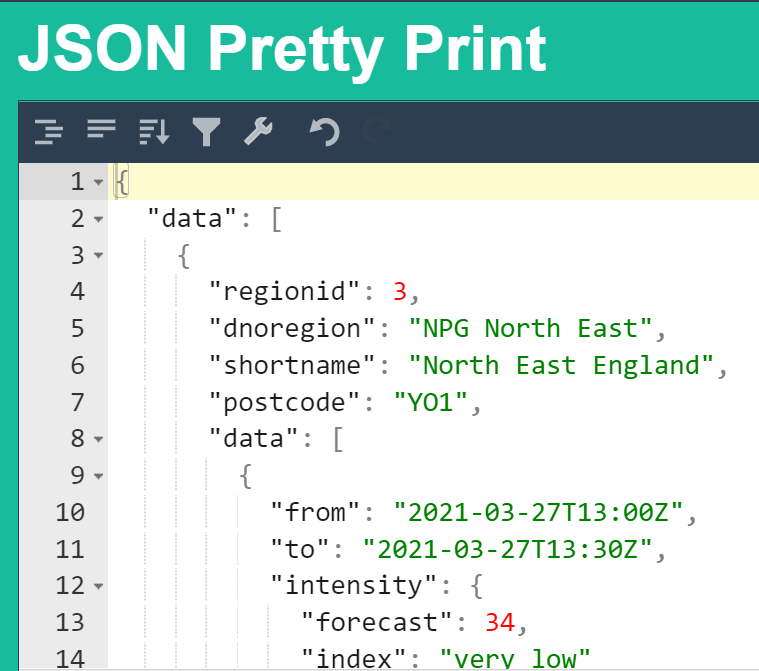 This allows you to quickly pinpoint the blob.key.subkey.data item you need to pull from in MSR.
This allows you to quickly pinpoint the blob.key.subkey.data item you need to pull from in MSR.Traversing the tree from upper-left to lower-right, I see the first instance of "forcecast" lives inside an overall object
{}(I'm namingresponse), then the first item (i.e. element0) of an array[]withindata, then inside another array within another key calleddata, then a key calledintensity, and finally the key you want,forecast, yielding:
response.data[0].data[0].intensity.forecast@librasun Reviving this a bit because this right here is where I think I'm failing spectacularly.
I'm working with the Ambient API for my weather station via Site Sensor in Vera. This thread has been fantastic at guiding me toward migrating the Site Sensor into MSR. Here's where I'm falling down:
The GET returns expected results. However, I believe I've messed up in creating the expressions for temp, wind speed, wind gust, and solar radiation.
I've entered
response[1].lastData.tempfinto the ambient_temp field and it returnsLast value:(error) Invalid reference to member 1 of null. This is taken right from the Site Sensor recipe where it's working wonderfully so I know I'm probably close. I know the expression logic in MSR is slightly different than that of the Vera Reactor plugin - combined with my almost total befuddlement of proper expressions go isn't helping
Appreciate any guidance!
-
@toggledbits QQ on the OWM built-in: is there a means by which to render it inactive until I need to call it? The way I work my Site Sensors is the one for OWM stays deactivated until the one for Ambient throws
nullat which point the OWM turns on, carrying the load until Ambient throws real data back out there again (at which time OWM shuts back off.)This saves wasted calls to the API for OWM.










